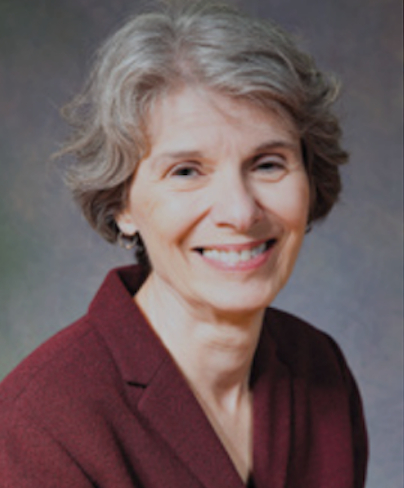On this date in 1945, Linda LaScola — qualitative researcher, clinical social worker and Clergy Project co-founder — was born to Elvira (née Favorite) and Philip LaScola in New Castle, Pa. Her mother was a housewife and clerk typist. Her father was a wholesale produce merchant. The youngest of three children, she had a stable and very happy childhood.
“Although we went to church every Sunday, we weren’t very religious,” LaScola said. “My mother refused to send us to Catholic schools. She didn’t go to church much herself, claiming ‘claustrophobia,’ and my father guiltlessly skipped [mandatory Mass on] holy days.” (In-sight Journal, Dec. 5, 2016)
She attended church less at Penn State University, where she earned a B.S. in secondary education in 1967. “Though I still believed in God, there was too much silliness in Catholicism for me to take the religion seriously. After about 20 years of marriage and without children, my husband, an agnostic, and I started attending an Episcopal Church, to fill his need for community.” (Ibid.)
Her employment included recreation and case work for the American Red Cross and five years as a U.S. Capitol tour guide during which she went back to school and earned a master’s degree in social work in 1979 from the Catholic University of America in Washington, D.C. She had married Arthur Siebens that same year after they’d met at a neighborhood public library.
Alcohol abuse and issues affecting work performance took up much of her time as a social worker. A natural outgrowth of that was her subequent career in qualitative research, which is commonly used in the humanities and social sciences to gather in-depth insights into an issue or to generate new ideas for research.
In a speech to FFRF’s national convention in 2016, LaScola detailed her project with nonbelieving clergy:
When I made my personal academic study of religion in 2005-2006, I learned that clergy learn about the mythological basis for the bible in seminary. As a qualitative researcher and former clinical social worker, I couldn’t figure out how they could then go out and teach and preach something they knew wasn’t true. How could they deal with the cognitive dissonance? I learned that philosopher Daniel Dennett had the same question. So, to make a long story very short, we teamed up with Tufts University to conduct a small pilot study, and then a larger study of 35, including current and former pastors, seminary students and professors.
Their 2010 paper in Evolutionary Psychology on the pilot study was titled “Preachers Who Are Not Believers” and was expanded in 2013 for their book “Caught in the Pulpit: Leaving Belief Behind.”
In 2011, LaScola became a co-founder of The Clergy Project, along with Dennett, FFRF’s Dan Barker, Richard Dawkins, a pastor called “Chris” and another named “Adam,” the latter who came out publicly in 2016 as Carter Warden. It launched with 52 charter members in a collaborative effort to provide online space where deconverted clergy could gather to support and encourage one another.
“The Unbelieving,” a 90-minute, off-Broadway play that was years in the making and was produced by LaScola and Dennett with staging by The Civilians theater company was scheduled for a 2022 run from Oct. 20 through Nov. 20 at 59E59 Theaters. The playwright is Marin Gazzaniga. Based on interviews conducted for “Caught in the Pulpit,” the play is described as a “classic tale of religious conversion, [in which] finding God holds the promise of a life filled with purpose and meaning. But what happens when this transformation occurs in reverse, and a faith you have built your life around begins to fall away?”
LaScola also blogged extensively at Rational Doubt on Patheos. As of this writing in 2022, she and her husband live in Washington, D.C., and The Clergy Project has over 1,000 members.


